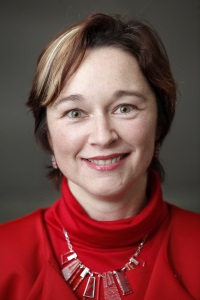|
Time: 15:00—17:30 pm, 2 April 2014
Location: Room 211, Engineer Building
Speaker: Professor Peggy Valcke

Prof. Valcke is a professor at Faculty of Law, Katholieke Universiteit Leuven, Belgium. She is the director of the Interdisciplinary Center for Law and ICT at the KUL. She is currently serving in the Belgian Competition Commission and Media Regulator. She is a internationally renowned expert in the fields of competition law, telecommunications regulation, media regulation and so on.
Abstract:
Ever since the Green Paper on Convergence of 1997, the European Union has attempted to adjust its regulatory frameworks for the information and communication sectors to the rapid changes in technology and innovation sweeping through the modern information society. It initiated a paradigm shift moving away from a silo-based approach (telecommunications versus broadcasting) to a horizontal approach (networks versus content services) in regulating these sectors. After modernizing its telecommunications rules in 2002, with the aim to reflect the increasing convergence of networks and devices, the EU also modified its broadcasting rules in 2007, in order to create a level playing field for traditional and online audiovisual services. Technology-neutrality became the new mantra and was expected to result in future-proof rules, fit for the internet era.
But at that time, the European legislator could hardly foresee the rocketing popularity of online video portals like YouTube or DailyMotion, or social media like Facebook and Twitter. Nor did it consider appropriate regulatory responses to the current trend of integration of the Internet and Web 2.0 features into modern television sets and set-top boxes (called Smart TV, Connected TV, or Hybrid TV). As the European Commission’s Green Paper on Media Convergence of last year rightly noted, media consumption patterns have changed drastically over the last five years and technological innovation relating to profiling and personalized TV offerings brings about new concerns over viewers’ privacy.
This lecture will first introduce the relevant EU legislative frameworks, providing insight into their context and origins. It will then focus the discussion on the challenges that result from the convergence between television and the Internet: are the traditional policy objectives (such as cultural diversity, prohibition of human dignity, protection of minors, access to important events, identification of promotional speech) still achievable in the new media landscape, and how? Should the growing role of new intermediaries (like news aggregators, search portals, platforms for user generated content, etc.) result in new rules, or would doing so risk undermining the free flow of information that is so highly valued in Western democracies?
|